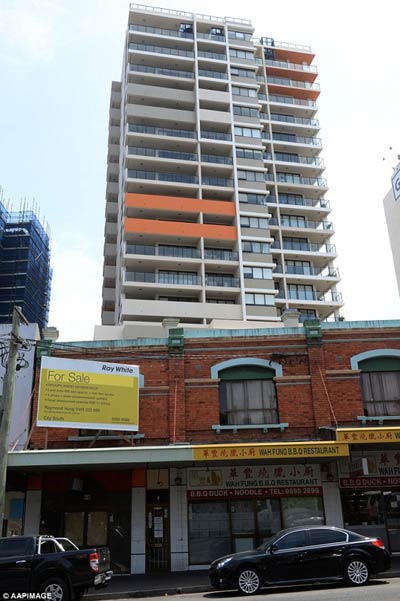當(dāng)前位置: Language Tips> 流行新詞
分享到

A new apartment building in Sydney has mysteriously left off the numbers four and 14 from the elevator.
在澳大利亞悉尼的一座新公寓樓內(nèi),電梯樓層按鈕面板上的兩個數(shù)字“4”和“14”神秘消失了。
The disappearance of the two floors is apparently because certain numbers are bad luck or have associations with death among Chinese, who are investing billions of dollars in the Australian property market.
這兩個樓層的消失顯然是因為在中國人看來,某些數(shù)字代表霉運或與死亡有關(guān)。中國人在澳大利亞房地產(chǎn)市場已投資數(shù)十億美元。
In Mandarin Chinese, the look and sound of the word for 'four' is very similar for the word 'death' - and that could be bad luck.
在普通話中,數(shù)字“4”和“死”諧音,一些中國人覺得不吉利。
This superstition is referred to as tetraphobia and is common in East Asian and Southeast Asian regions such as China, Japan, Malaysia and Korea.
這種迷信被稱為“恐四癥”,在中國、日本、馬來西亞和韓國等東亞和東南亞國家和地區(qū)非常普遍。
The disappearing floors are an example of increasing foreign investment in Australian property.
相關(guān)樓層的消失正是外國人對澳大利亞房市投資不斷增加的例證。
Tetraphobia is the practice of avoiding instances of the number 4.
“恐四癥”指的是忌諱數(shù)字4的行為。
Tetraphobia far surpasses triskaidekaphobia (Western superstitions around the number 13). It even permeates the business world in these regions of Asia.
“恐四癥”比“恐13癥”還要嚴重,影響到亞洲一些地區(qū)的商界。
The Chinese avoid phone numbers and addresses with fours, especially when they’re combined with another number that changes the meaning. Example: “94” could be interpreted as being dead for a long time.
中國人忌諱在電話號碼和地址中出現(xiàn)4,特別是4與其他數(shù)字連讀出現(xiàn)諧音時,比如“94”會讓人聯(lián)想到“就死”。
(中國日報網(wǎng)英語點津 yaning)
上一篇 : 與人約飯遭遇“錢包威脅”?
下一篇 :
分享到
關(guān)注和訂閱


翻譯
關(guān)于我們 | 聯(lián)系方式 | 招聘信息
電話:8610-84883645
傳真:8610-84883500
Email: languagetips@chinadaily.com.cn